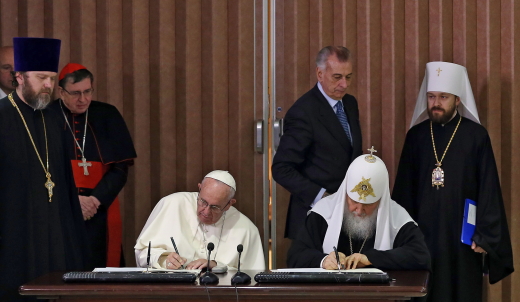
Feb 15, 2016 | Focolare Worldwide
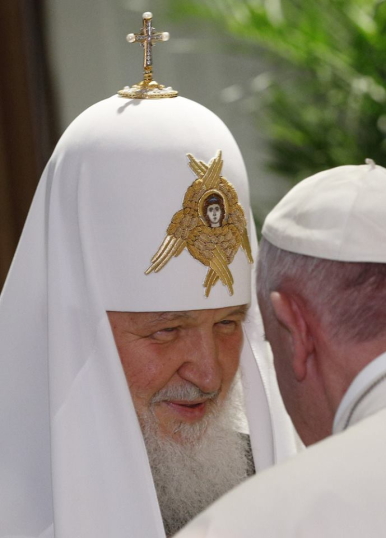 The Airport of Havana, Cuba, hosted the first meeting in history between the Bishop of Rome and the Patriarch of Moscow, on February 12, 2016. It was a fraternal encounter “between bishops’ that “gave an opportunity to listen and understand each other’s positions” said Patriarch Kirill at the conclusion of the meeting. Among the common concerns were the desire for peace and the defence of persecuted Christians around the world. “I felt the consolation of the Holy Spirit in this dialogue,” Pope Francis remarked, with the prospect of “a series of initiatives” to be carried forward together. “We are not competitors but brothers, and this concept must guide all our mutual actions as well as those directed to the outside world,” states the Joint Declaration that was signed by the Pope and the Patriarch. The declaration calls for common efforts between Roman Catholic and Orthodox Christians, and overcoming the historic divergences we have inherited, responding together to the challenges of today’s world. Christians are now victims of persecutions and violence in Syria, Iraq and other Middle East countries. Other challenges include the fight against terrorism, interreligious dialogue, European integration and respect for religious identities. The document also mentions social and ethical topics, with “pastoral” concern, as Pope Francis stressed while speaking with journalists on the flight between Cuba and Mexico: poverty, the breakdown of the family, the right to life (abortion, euthanasia and assisted reproduction), young people and peace in Ukraine. Much of the future of humanity will depend on our capacity to give shared witness to the Spirit of truth in these difficult times,” the document goes on to say.
The Airport of Havana, Cuba, hosted the first meeting in history between the Bishop of Rome and the Patriarch of Moscow, on February 12, 2016. It was a fraternal encounter “between bishops’ that “gave an opportunity to listen and understand each other’s positions” said Patriarch Kirill at the conclusion of the meeting. Among the common concerns were the desire for peace and the defence of persecuted Christians around the world. “I felt the consolation of the Holy Spirit in this dialogue,” Pope Francis remarked, with the prospect of “a series of initiatives” to be carried forward together. “We are not competitors but brothers, and this concept must guide all our mutual actions as well as those directed to the outside world,” states the Joint Declaration that was signed by the Pope and the Patriarch. The declaration calls for common efforts between Roman Catholic and Orthodox Christians, and overcoming the historic divergences we have inherited, responding together to the challenges of today’s world. Christians are now victims of persecutions and violence in Syria, Iraq and other Middle East countries. Other challenges include the fight against terrorism, interreligious dialogue, European integration and respect for religious identities. The document also mentions social and ethical topics, with “pastoral” concern, as Pope Francis stressed while speaking with journalists on the flight between Cuba and Mexico: poverty, the breakdown of the family, the right to life (abortion, euthanasia and assisted reproduction), young people and peace in Ukraine. Much of the future of humanity will depend on our capacity to give shared witness to the Spirit of truth in these difficult times,” the document goes on to say.  “Here in Moscow there is also the feeling that this was an important and historic meeting” writes focolarina Anna Gloria from the focolare in Moscow. The mass media are talking about it a lot. Bishop Paolo Pezzi invited everyone to the Cathedral of the Immaculate Conception to pray for unity. It was quite beautiful. There were Catholics and Orthodox from several movements and communities. Everyone feels that an important step towards unity has been taken.” Despite recent tensions between Moscow and Rome, the Russian Orthodox Church has a long history of seeking the reconciliation of the divided Christian churches. Father Hyacinthe Destivelle said so during an interview with the Vatican Radio. He is in charge of relations with the Slavic Orthodox Churches at the Pontifical Council for Christian Unity and was in Cuba for the meeting. Father Destivelle also explained that “the Russian Orthodox Church is fifth in the traditional order of authority among the 14 autocephalous Orthodox Churches. First position belongs to the Patriarchate of Constantinople, with a primacy of honour. It has a special relationship with the Holy See.” “The significance of the meeting between Pope Francis and Patriarch Kirill can also be seen in light of history with the Russian Orthodox Church,” where it “can act as a bridge between East and West.” Father Destivelle also gave other examples of how the Russian Orthodox Church was an active pioneer in ecumenical relations. It was the first Church to send observers during the Second Vatican Council. During their private meeting, Pope Francis and Patriarch Kirill also discussed the upcoming Pan-Orthodox Council scheduled for June 2016 in Crete. It will ”gather all the Orthodox churches for an Orthodox Synod,” Dr. Dimitrios Keramidas recently explained at an ecumenical school of the Focolare Movement, “this is not an event that is inserted into ecclesial life, but rather the official manifestation of the communional essence of the Church, the on-going and uninterrupted journey of the People of God.” It is a journey towards unity.
“Here in Moscow there is also the feeling that this was an important and historic meeting” writes focolarina Anna Gloria from the focolare in Moscow. The mass media are talking about it a lot. Bishop Paolo Pezzi invited everyone to the Cathedral of the Immaculate Conception to pray for unity. It was quite beautiful. There were Catholics and Orthodox from several movements and communities. Everyone feels that an important step towards unity has been taken.” Despite recent tensions between Moscow and Rome, the Russian Orthodox Church has a long history of seeking the reconciliation of the divided Christian churches. Father Hyacinthe Destivelle said so during an interview with the Vatican Radio. He is in charge of relations with the Slavic Orthodox Churches at the Pontifical Council for Christian Unity and was in Cuba for the meeting. Father Destivelle also explained that “the Russian Orthodox Church is fifth in the traditional order of authority among the 14 autocephalous Orthodox Churches. First position belongs to the Patriarchate of Constantinople, with a primacy of honour. It has a special relationship with the Holy See.” “The significance of the meeting between Pope Francis and Patriarch Kirill can also be seen in light of history with the Russian Orthodox Church,” where it “can act as a bridge between East and West.” Father Destivelle also gave other examples of how the Russian Orthodox Church was an active pioneer in ecumenical relations. It was the first Church to send observers during the Second Vatican Council. During their private meeting, Pope Francis and Patriarch Kirill also discussed the upcoming Pan-Orthodox Council scheduled for June 2016 in Crete. It will ”gather all the Orthodox churches for an Orthodox Synod,” Dr. Dimitrios Keramidas recently explained at an ecumenical school of the Focolare Movement, “this is not an event that is inserted into ecclesial life, but rather the official manifestation of the communional essence of the Church, the on-going and uninterrupted journey of the People of God.” It is a journey towards unity.
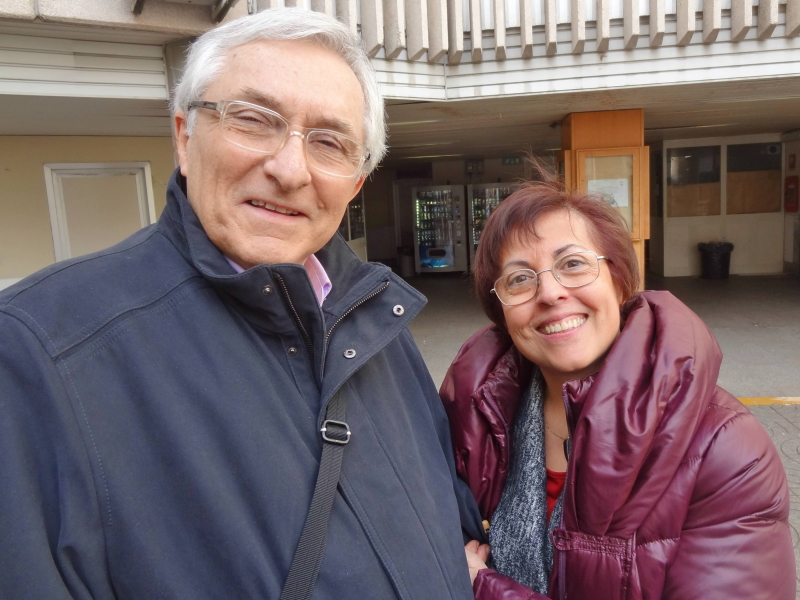
Feb 15, 2016 | Focolare Worldwide
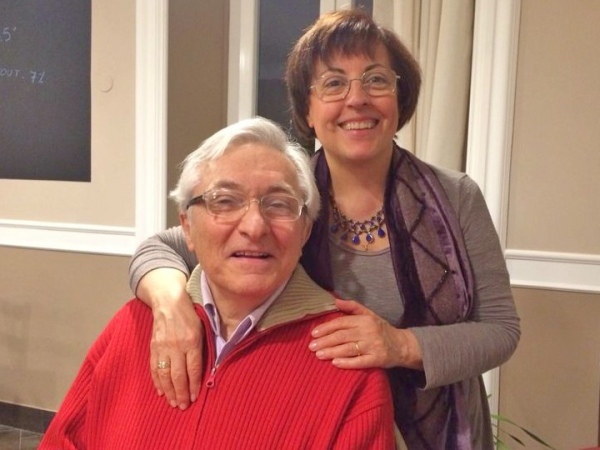 “When I left my home for the bank I was working at 21 years ago, I certainly wasn’t thinking that I wouldn’t return home that night. A strong headache forced my colleagues to take me to hospital. I was 49 years old with a well-established professional career, an upcoming promotion, a beautiful family with three daughters between 14 and 18. Suddenly and unexpectedly I found myself in a wheelchair that I was unable to control because, along with the use of my legs, I had also lost the use of my arms. I had been turned into nothing: I needed help eating, bathing and dressing. . . I was totally dependent on others. I was feeling desperate and anxious, feelings that I tried to reject because I knew they weren’t the solution. From when I embraced the spirituality of the Focolare, I have learned to be totally disposed to God’s will, and even though I didn’t understand the reason for this nightmare, my wife and I wanted to believe that it too was God’s love for me, for us. My daughters also shared in our decision and, right from the first days I found strength and patience that I never dreamed of finding. In a few months I regained the use of my legs and, with great effort and the support of a colleague who accompanied me was able to go back to work for another 7 years. Then I just couldn’t do it anymore.”
“When I left my home for the bank I was working at 21 years ago, I certainly wasn’t thinking that I wouldn’t return home that night. A strong headache forced my colleagues to take me to hospital. I was 49 years old with a well-established professional career, an upcoming promotion, a beautiful family with three daughters between 14 and 18. Suddenly and unexpectedly I found myself in a wheelchair that I was unable to control because, along with the use of my legs, I had also lost the use of my arms. I had been turned into nothing: I needed help eating, bathing and dressing. . . I was totally dependent on others. I was feeling desperate and anxious, feelings that I tried to reject because I knew they weren’t the solution. From when I embraced the spirituality of the Focolare, I have learned to be totally disposed to God’s will, and even though I didn’t understand the reason for this nightmare, my wife and I wanted to believe that it too was God’s love for me, for us. My daughters also shared in our decision and, right from the first days I found strength and patience that I never dreamed of finding. In a few months I regained the use of my legs and, with great effort and the support of a colleague who accompanied me was able to go back to work for another 7 years. Then I just couldn’t do it anymore.” 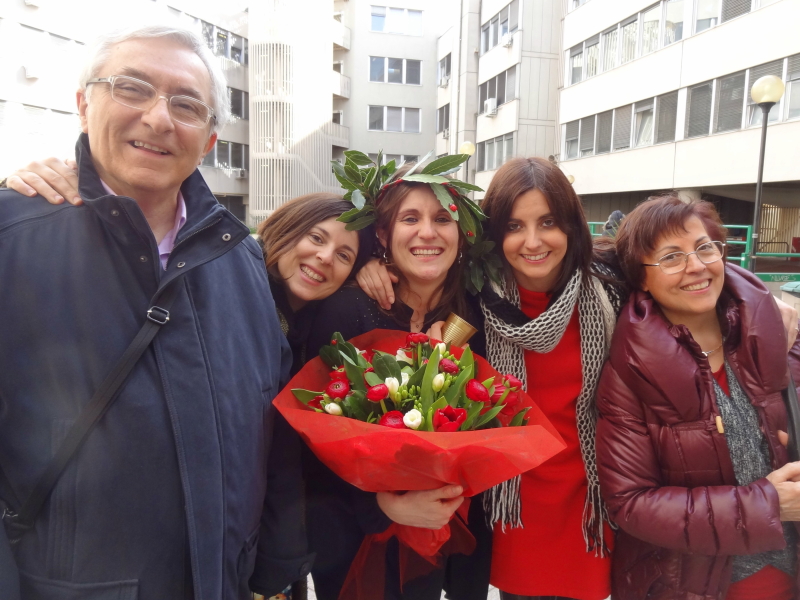 Already then, I wasn’t able to walk because of my handicap, if not just for short distances. I could no longer drive the car, take a shower alone, button my clothing, cut the food on my plate, turn on the coffee machine or embrace my wife and children. I couldn’t do any of those things that required the use of two hands. At times the fear was even bitterer. Fear of not being able go on living as a couple, fear of the solitude, of my fragility in the face of different situations, fear of the doubt about whether I would be able to continue in my role as father, and so on. Now, with much effort I continue with physiotherapy, even though I know that healing isn’t on the landscape. At least it slows the process of debilitation. During these 21 years God has never failed to accompany me with refined faithfulness, delicateness and tenderness that only He knows how to give. Pina and I have learned to let ourselves me carried by Him, to let ourselves be surprised by His Love. And when everything seemed to crumble, or became unstable, deep in our heart we understood that this partaking – in some way – in the mystery of Jesus on the Cross, was a privilege for us. Like Him, we try to overcome the pain by loving everyone around us, experiencing what could be called a ‘divine alchemy’ wherein suffering is like a talent to be turned into love.
Already then, I wasn’t able to walk because of my handicap, if not just for short distances. I could no longer drive the car, take a shower alone, button my clothing, cut the food on my plate, turn on the coffee machine or embrace my wife and children. I couldn’t do any of those things that required the use of two hands. At times the fear was even bitterer. Fear of not being able go on living as a couple, fear of the solitude, of my fragility in the face of different situations, fear of the doubt about whether I would be able to continue in my role as father, and so on. Now, with much effort I continue with physiotherapy, even though I know that healing isn’t on the landscape. At least it slows the process of debilitation. During these 21 years God has never failed to accompany me with refined faithfulness, delicateness and tenderness that only He knows how to give. Pina and I have learned to let ourselves me carried by Him, to let ourselves be surprised by His Love. And when everything seemed to crumble, or became unstable, deep in our heart we understood that this partaking – in some way – in the mystery of Jesus on the Cross, was a privilege for us. Like Him, we try to overcome the pain by loving everyone around us, experiencing what could be called a ‘divine alchemy’ wherein suffering is like a talent to be turned into love.  God took me/us by the hand and, little by little revealing his plan for us, led us into deep intimacy with Him among us, making us understand the mystery of suffering – in the light. And what could be considered a limit has been transformed into richness, what could have stopped us has been turned into a race. Not even an invasive handicap can take away the possibility of being a tool in God’s hands for our neighbor.” Giulio Ciarrocchi
God took me/us by the hand and, little by little revealing his plan for us, led us into deep intimacy with Him among us, making us understand the mystery of suffering – in the light. And what could be considered a limit has been transformed into richness, what could have stopped us has been turned into a race. Not even an invasive handicap can take away the possibility of being a tool in God’s hands for our neighbor.” Giulio Ciarrocchi

Feb 14, 2016 | Non categorizzato
 “How will we celebrate St. Valentines? We don’t know yet. Any occasion is fine for surprising the other with something nice, hiding last-minute gifts.” Iris is a 26 year-old Brazilian. She is in Italy on an international cooperative project. She is engaged to Antonello, an Economics graduate, waiting for a job that is more in tune with his academic background. He works shifts at a call centre. When they first met, Iris was a bit reluctant about beginning a new relationship, because she had been previously disappointed by love. But Antonello managed to get her cell phone number and with his fantastic text messages, finally convinced her to give it another try. “The more we met, the more I realised I was in love,” Iris admits, “and we began to make plans.” “What kind of plans?” we asked. “First of all,” says Antonello, “I wanted to introduce her to my parents. Then we travelled to Brazil to meet her parents. Meanwhile, we were discovering each other’s cultures and different religious beliefs. Iris is deeply Catholic. I have a more humanistic view of things. But even if we come from different paths, we’re both convinced of the beauty of marriage, and that it is a profoundly human and sacred act.” Iris recounts: “That exchange – which for me, accustomed to certainties that were too often taken for granted – wasn’t easy. But it helped us to realise how strong our love was, a love that made us grow as human beings: I became more of a woman, and Antonello more of a man. It also led us to our decision that we would get married when we were financially independent.” Their certainty is disarming, considering the many couples around them whose relationships have failed, whose great love has vanished into thin air. Just the same, they want to take the big step into marriage because – as they say – “We’re sure of our love. It’s not merely a romantic dinner or a chocolate Valentine heart. “Love,” Iris explains, “is falling in love with the other’s soul. It’s knowing how to put aside one’s own thinking, to make room for the other’s thinking, and to show that for you, he matters more for what he is than for what you would like him to be.”
“How will we celebrate St. Valentines? We don’t know yet. Any occasion is fine for surprising the other with something nice, hiding last-minute gifts.” Iris is a 26 year-old Brazilian. She is in Italy on an international cooperative project. She is engaged to Antonello, an Economics graduate, waiting for a job that is more in tune with his academic background. He works shifts at a call centre. When they first met, Iris was a bit reluctant about beginning a new relationship, because she had been previously disappointed by love. But Antonello managed to get her cell phone number and with his fantastic text messages, finally convinced her to give it another try. “The more we met, the more I realised I was in love,” Iris admits, “and we began to make plans.” “What kind of plans?” we asked. “First of all,” says Antonello, “I wanted to introduce her to my parents. Then we travelled to Brazil to meet her parents. Meanwhile, we were discovering each other’s cultures and different religious beliefs. Iris is deeply Catholic. I have a more humanistic view of things. But even if we come from different paths, we’re both convinced of the beauty of marriage, and that it is a profoundly human and sacred act.” Iris recounts: “That exchange – which for me, accustomed to certainties that were too often taken for granted – wasn’t easy. But it helped us to realise how strong our love was, a love that made us grow as human beings: I became more of a woman, and Antonello more of a man. It also led us to our decision that we would get married when we were financially independent.” Their certainty is disarming, considering the many couples around them whose relationships have failed, whose great love has vanished into thin air. Just the same, they want to take the big step into marriage because – as they say – “We’re sure of our love. It’s not merely a romantic dinner or a chocolate Valentine heart. “Love,” Iris explains, “is falling in love with the other’s soul. It’s knowing how to put aside one’s own thinking, to make room for the other’s thinking, and to show that for you, he matters more for what he is than for what you would like him to be.”  Everything seems easy when you’re falling in love, but like all the other the seasons of life, it too fades away. The experts say that it lasts for a year or so; then you find yourself back on the ground. “We know it’s not always going to be this passionate,” says Antonello, “that there will be dark moments. . . In fact, we enrolled in a course for engaged couples, so that we can share our experience with other people like us. I know that we’ll also talk about the difficulties there will be, about the crisis that will come. And they’ve already told us that they’ll explain to us how to overcome that: by seeing each other new every day, and always beginning again. Regarding beginning again . . . that’s another opportunity that every couple needs, along with ongoing dialogue, seeing happiness not as a personal right, but as something to be given, healthy detachment from one’s original family, communicating with other couples, the ability to forgive, gratuitousness and tenderness . . . These are some of the topics that will be covered, including sexuality and procreation that are commonly presented in courses for engaged couples. It will be the same for this one organised by the Focolare Movement’s New Families, which will take place on April 8-10, 2016 in Loppiano, Italy. Besides, these courses are required for couples who plan to marry in the Catholic Church. So, why not take advantage of them?” For more information
Everything seems easy when you’re falling in love, but like all the other the seasons of life, it too fades away. The experts say that it lasts for a year or so; then you find yourself back on the ground. “We know it’s not always going to be this passionate,” says Antonello, “that there will be dark moments. . . In fact, we enrolled in a course for engaged couples, so that we can share our experience with other people like us. I know that we’ll also talk about the difficulties there will be, about the crisis that will come. And they’ve already told us that they’ll explain to us how to overcome that: by seeing each other new every day, and always beginning again. Regarding beginning again . . . that’s another opportunity that every couple needs, along with ongoing dialogue, seeing happiness not as a personal right, but as something to be given, healthy detachment from one’s original family, communicating with other couples, the ability to forgive, gratuitousness and tenderness . . . These are some of the topics that will be covered, including sexuality and procreation that are commonly presented in courses for engaged couples. It will be the same for this one organised by the Focolare Movement’s New Families, which will take place on April 8-10, 2016 in Loppiano, Italy. Besides, these courses are required for couples who plan to marry in the Catholic Church. So, why not take advantage of them?” For more information
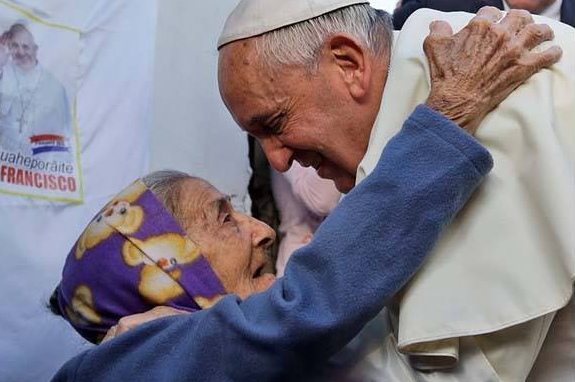
Feb 13, 2016 | Non categorizzato
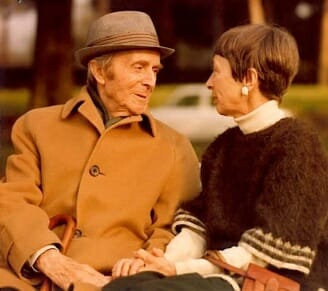 “The Gospel isn’t just a collection of words. It’s also a list of facts. It’s life. Jesus not only preached, he healed the sick, comforted the afflicted, raised the dead and fed the hungry. He performed the Works of Mercy because He loved. “I have compassion for these people,” He exclaimed upon seeing the hungry throngs, and He multiplied bread to satisfy their hunger. Bread takes on a sacred value in the Redemption. Jesus inserts the greatest mystery into bread, and He made the Eucharistic Banquet the core of the life of the Church community, forever uniting body and spirit, just as He had united humanity and divinity in Himself. Therefore, you love God, the Father, when you feed the hungry. All those who can offer nourishment to the undernourished and hungry and don’t do so, are murderers according to the Fathers of the Church; indeed, they’re god-killers. They cause Christ to die. From the perspective of the Gospel all those who, during the war years, forced condemned prisoners to starve to death, repeated the crucifixion. It was like murdering God. The hordes of the deported – in snow or under blazing sun, in armored cars, or in isolated ships whose monotony was only interrupted by the falling of the hungry – crossed the line of practical atheism even when it was perpetrated in the name of God. That is why Saint Vincent de Paul went aboard the galleys of very Christian kings, where the galley slaves were dropping dead from exhaustion. A Work of Mercy is not the mere distribution of food or money. It reconstitutes justice. “The Works of Mercy accomplish nothing without love,” Saint Augustine says. “If I give everything I own to the poor and even go to the stake to be burned as a martyr, but I don’t love, I’ve gotten nowhere” (1 Cor 13:3), Saint Paul says to those Christians who shared the Bread of Angels but not that of men. The cold and reserved woman who gives Christmas to the poor but never opens her soul to them, performs nothing more than a bureaucratic duty: Christ is not pleased. Social welfare does little or nothing at all to produce the effects of a religious life, if those who carry it out don’t bring that divine nourishment of the Holy Spirit, which is love.
“The Gospel isn’t just a collection of words. It’s also a list of facts. It’s life. Jesus not only preached, he healed the sick, comforted the afflicted, raised the dead and fed the hungry. He performed the Works of Mercy because He loved. “I have compassion for these people,” He exclaimed upon seeing the hungry throngs, and He multiplied bread to satisfy their hunger. Bread takes on a sacred value in the Redemption. Jesus inserts the greatest mystery into bread, and He made the Eucharistic Banquet the core of the life of the Church community, forever uniting body and spirit, just as He had united humanity and divinity in Himself. Therefore, you love God, the Father, when you feed the hungry. All those who can offer nourishment to the undernourished and hungry and don’t do so, are murderers according to the Fathers of the Church; indeed, they’re god-killers. They cause Christ to die. From the perspective of the Gospel all those who, during the war years, forced condemned prisoners to starve to death, repeated the crucifixion. It was like murdering God. The hordes of the deported – in snow or under blazing sun, in armored cars, or in isolated ships whose monotony was only interrupted by the falling of the hungry – crossed the line of practical atheism even when it was perpetrated in the name of God. That is why Saint Vincent de Paul went aboard the galleys of very Christian kings, where the galley slaves were dropping dead from exhaustion. A Work of Mercy is not the mere distribution of food or money. It reconstitutes justice. “The Works of Mercy accomplish nothing without love,” Saint Augustine says. “If I give everything I own to the poor and even go to the stake to be burned as a martyr, but I don’t love, I’ve gotten nowhere” (1 Cor 13:3), Saint Paul says to those Christians who shared the Bread of Angels but not that of men. The cold and reserved woman who gives Christmas to the poor but never opens her soul to them, performs nothing more than a bureaucratic duty: Christ is not pleased. Social welfare does little or nothing at all to produce the effects of a religious life, if those who carry it out don’t bring that divine nourishment of the Holy Spirit, which is love.  No one is moved by or grateful to the faucet for the water it provides, or by the light bulb for the light it provides, Ozanam remarks. “Man does not live on bread alone,” because he is soul as well as stomach. A Work of Mercy is a moral and material duty. By feeding the hungry, I feed me because his hunger is both mine and that of the whole social body of which I am an organic part. You can’t dump grain into the ocean when in another part of the world there is someone dying of hunger. “We, though many, are one body throughout the world:” and you cannot injure one body part to the advantage of another. If you do, you’ll pay for it with revolutions, disorder and all the epidemics that are found on this side of Heaven, and with hell on the other side. It has been said that the earth is dying, that the world’s resources are diminishing and the wars increasing precisely because of hunger. Some would like to solve the problem with war and birth control, doing away with human life. But it’s not resources that are lacking; what’s lacking is love – and the intelligence – for making it circulate. Circulation is life. The stagnation brought about by accumulation is a source of hate, revolution and war. It’s death. “If your enemy is hungry, feed him, if he is thirsty, give him something to drink. In doing this, you will heap burning coals on his head” (Rm 12:20). The Works of Mercy perform the miracle of making the love circulate by making the bread circulate. It’s a miracle that transforms bread into a sort of social sacrament, in which you begin from love, God, and you nourish the body along with the soul. (From:Igino Giordani, Il fratello (Rome: Città Nuova, 2011) p.63-67.
No one is moved by or grateful to the faucet for the water it provides, or by the light bulb for the light it provides, Ozanam remarks. “Man does not live on bread alone,” because he is soul as well as stomach. A Work of Mercy is a moral and material duty. By feeding the hungry, I feed me because his hunger is both mine and that of the whole social body of which I am an organic part. You can’t dump grain into the ocean when in another part of the world there is someone dying of hunger. “We, though many, are one body throughout the world:” and you cannot injure one body part to the advantage of another. If you do, you’ll pay for it with revolutions, disorder and all the epidemics that are found on this side of Heaven, and with hell on the other side. It has been said that the earth is dying, that the world’s resources are diminishing and the wars increasing precisely because of hunger. Some would like to solve the problem with war and birth control, doing away with human life. But it’s not resources that are lacking; what’s lacking is love – and the intelligence – for making it circulate. Circulation is life. The stagnation brought about by accumulation is a source of hate, revolution and war. It’s death. “If your enemy is hungry, feed him, if he is thirsty, give him something to drink. In doing this, you will heap burning coals on his head” (Rm 12:20). The Works of Mercy perform the miracle of making the love circulate by making the bread circulate. It’s a miracle that transforms bread into a sort of social sacrament, in which you begin from love, God, and you nourish the body along with the soul. (From:Igino Giordani, Il fratello (Rome: Città Nuova, 2011) p.63-67.
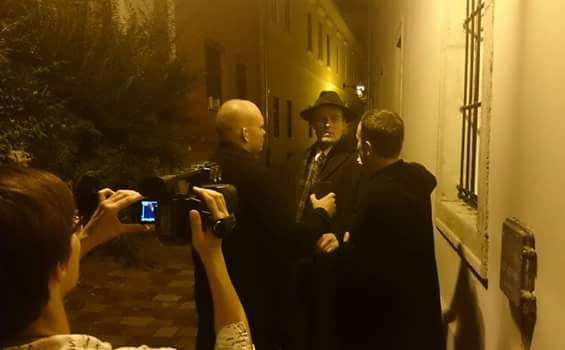
Feb 12, 2016 | Focolare Worldwide
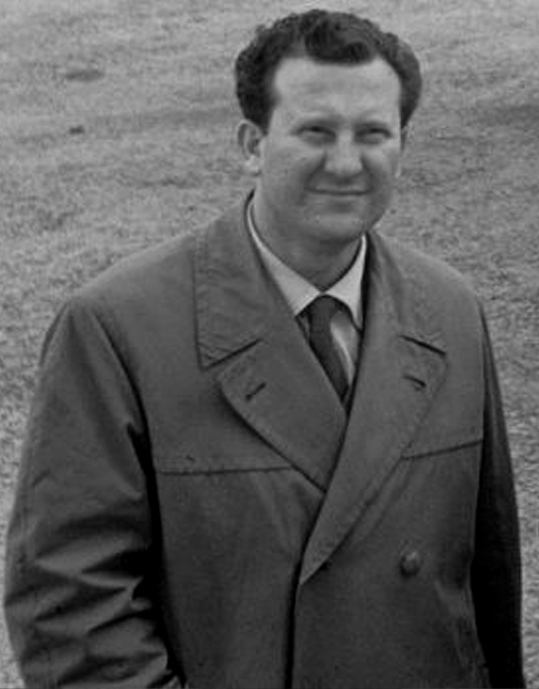
Guido Mirti (Cengia)
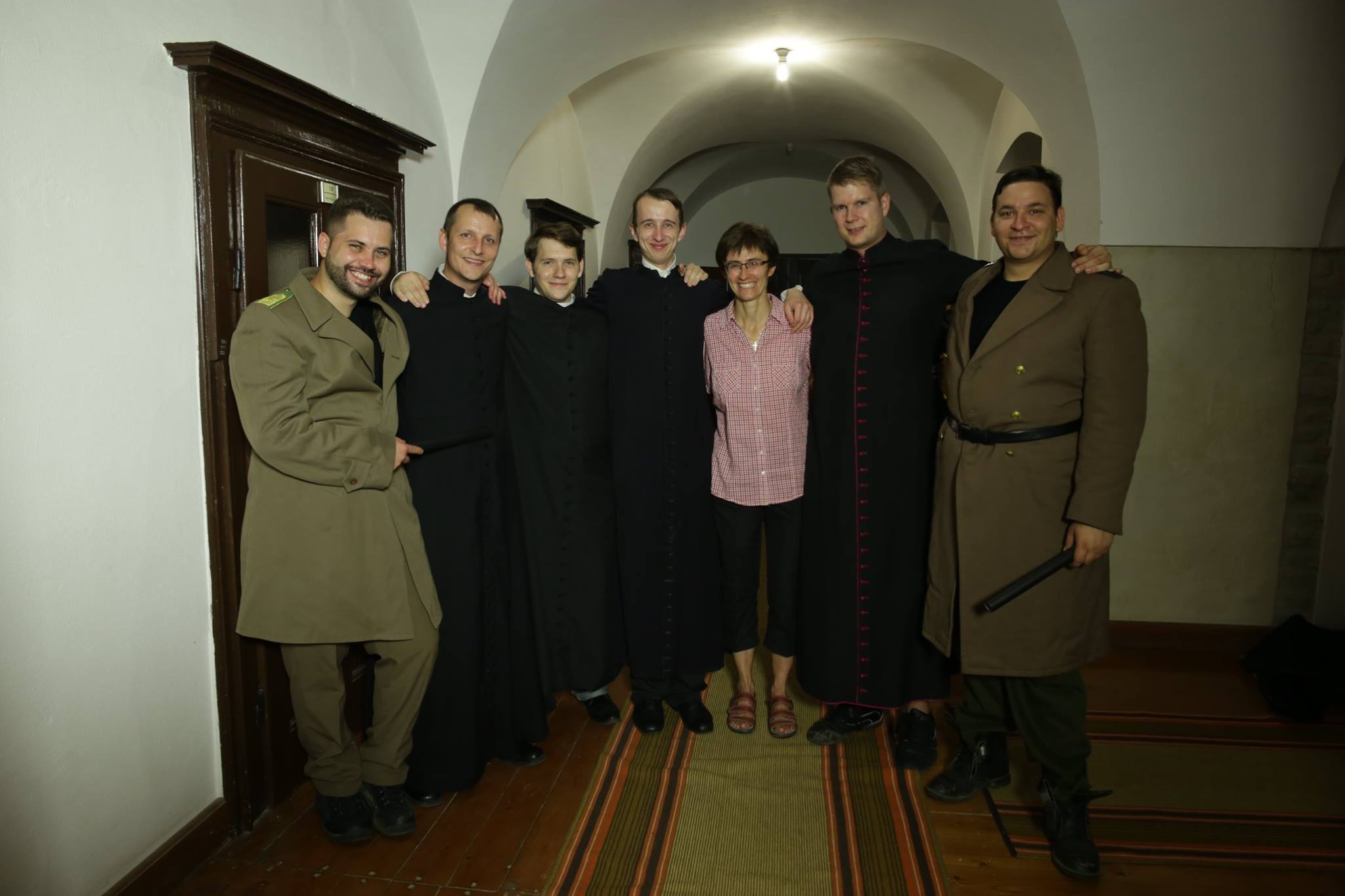
Film director, Cinzia Panero, with some of the actors.
 “While writing and then running the scenes,” says the director, “I also got to experience the power of that Love that opened the hearts of many people and institutions to give generously. The thank you list is quite long and will be well documented in the credits at the end of the film. Here, I would only like to mention the 50 actors – both professional and non – who were willing to wear heavy coats, scarves and winter clothing in the sweltering summer heat. Or the absolute availability and careful attention of Swing City Hotel in setting up a camera. We can never forget the costume designers who created and sewed the uniforms of 5 prisoners. But also the 70 people who contributed funds for the filming, equipment, advice and hearty awareness that they were involved in a project that was highlighting values such as giving, loyalty and making brave decisions. Border Men is a message for all of us: to be people of dialogue no matter where we are. Maria Chiara De Lorenzo See the Official English Trailer: https://www.youtube.com/watch?v=xq0TJEDaEg8 See webside: border.men.info@gmail.com
“While writing and then running the scenes,” says the director, “I also got to experience the power of that Love that opened the hearts of many people and institutions to give generously. The thank you list is quite long and will be well documented in the credits at the end of the film. Here, I would only like to mention the 50 actors – both professional and non – who were willing to wear heavy coats, scarves and winter clothing in the sweltering summer heat. Or the absolute availability and careful attention of Swing City Hotel in setting up a camera. We can never forget the costume designers who created and sewed the uniforms of 5 prisoners. But also the 70 people who contributed funds for the filming, equipment, advice and hearty awareness that they were involved in a project that was highlighting values such as giving, loyalty and making brave decisions. Border Men is a message for all of us: to be people of dialogue no matter where we are. Maria Chiara De Lorenzo See the Official English Trailer: https://www.youtube.com/watch?v=xq0TJEDaEg8 See webside: border.men.info@gmail.com
Feb 11, 2016 | Non categorizzato
“OnCity: Networks of light to inhabit the planet” is the title of a workshop on international citizenship that will take place on April 1-3, 2016 at Castel Gandolfo Conference Centre, Italy. The conference is organised by the New Humanity Movement, Youth for a United World and the United World Project which are all agencies of the Focolare Movement that are engaged in promoting brotherhood among generations, individuals, groups and peoples. We are challenged by current events: bombings, terrorism, new forms of poverty and marginalisation and a piecemeal world war. Cities are in trouble, suffering from contradictions that everyone can see. But there are also positive experiences which show that it is possible to work, believe and hope for more liveable and fraternal cities. The three-day workshop will examine changes taking place in today’s cities and present a lifestyle of dialogue. For information and reservations: oncity2016.net info@oncity2016.net 06/94792170 Download brochure: pdf ONCITY2016- reti di luci per abitare il pianeta (14.05 MB)
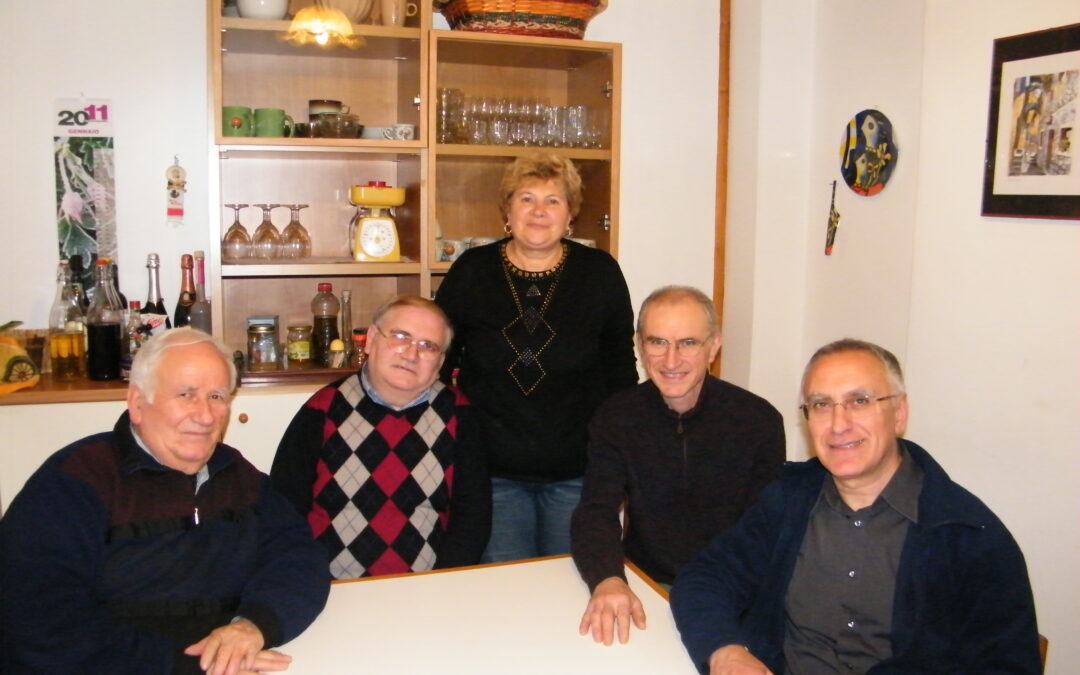
Feb 11, 2016 | Focolare Worldwide, Senza categoria
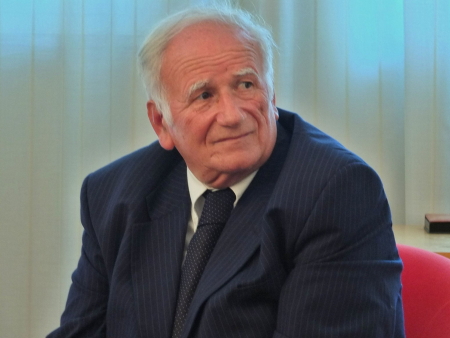 “I was still a child,” Alfonso from the class of 1945 recounts, “when my father was unjustly imprisoned. My mother and I would visit him in prison and, at such a tender age I realised how lonely the inmates were: people without hope or future – and without dignity. So, I promised myself that one day I would do something for them.” Alfonso had to wait for that chance. He enrolled in a course on volunteering and obtained permission to make visits to Rebibbia Prison, which currently has 1,700 inmates. They are serving time for the most varied crimes: drug dealing, sex abuse, mafia activity, extortion, murder, and more. Alfonso was aware that his efforts would be limited by the distrust of the inmates who belived they had lost any chance at redemption. In fact, many of them refused to let him approach. But he never gave up because he was convinced they were the image of the God he had chosen when he became a focolarino. Finally, one inmate named Giorgio who was serving time for a kidnapping that ended in tragedy, asked Alfonso to go to his mother, to embrace her and ask her to forgive him. Alfonso went and found the woman close to the end of her life. This totally unexpected, but long-awaited gesture, reconciled her to her son and the past. A few days later, she died peacefully. Alfonso stood by her son until his release from prison. He also helped Giorgio find temporary employment that restored his sense of dignity, enabling him to contribute to the support of the family.
“I was still a child,” Alfonso from the class of 1945 recounts, “when my father was unjustly imprisoned. My mother and I would visit him in prison and, at such a tender age I realised how lonely the inmates were: people without hope or future – and without dignity. So, I promised myself that one day I would do something for them.” Alfonso had to wait for that chance. He enrolled in a course on volunteering and obtained permission to make visits to Rebibbia Prison, which currently has 1,700 inmates. They are serving time for the most varied crimes: drug dealing, sex abuse, mafia activity, extortion, murder, and more. Alfonso was aware that his efforts would be limited by the distrust of the inmates who belived they had lost any chance at redemption. In fact, many of them refused to let him approach. But he never gave up because he was convinced they were the image of the God he had chosen when he became a focolarino. Finally, one inmate named Giorgio who was serving time for a kidnapping that ended in tragedy, asked Alfonso to go to his mother, to embrace her and ask her to forgive him. Alfonso went and found the woman close to the end of her life. This totally unexpected, but long-awaited gesture, reconciled her to her son and the past. A few days later, she died peacefully. Alfonso stood by her son until his release from prison. He also helped Giorgio find temporary employment that restored his sense of dignity, enabling him to contribute to the support of the family. 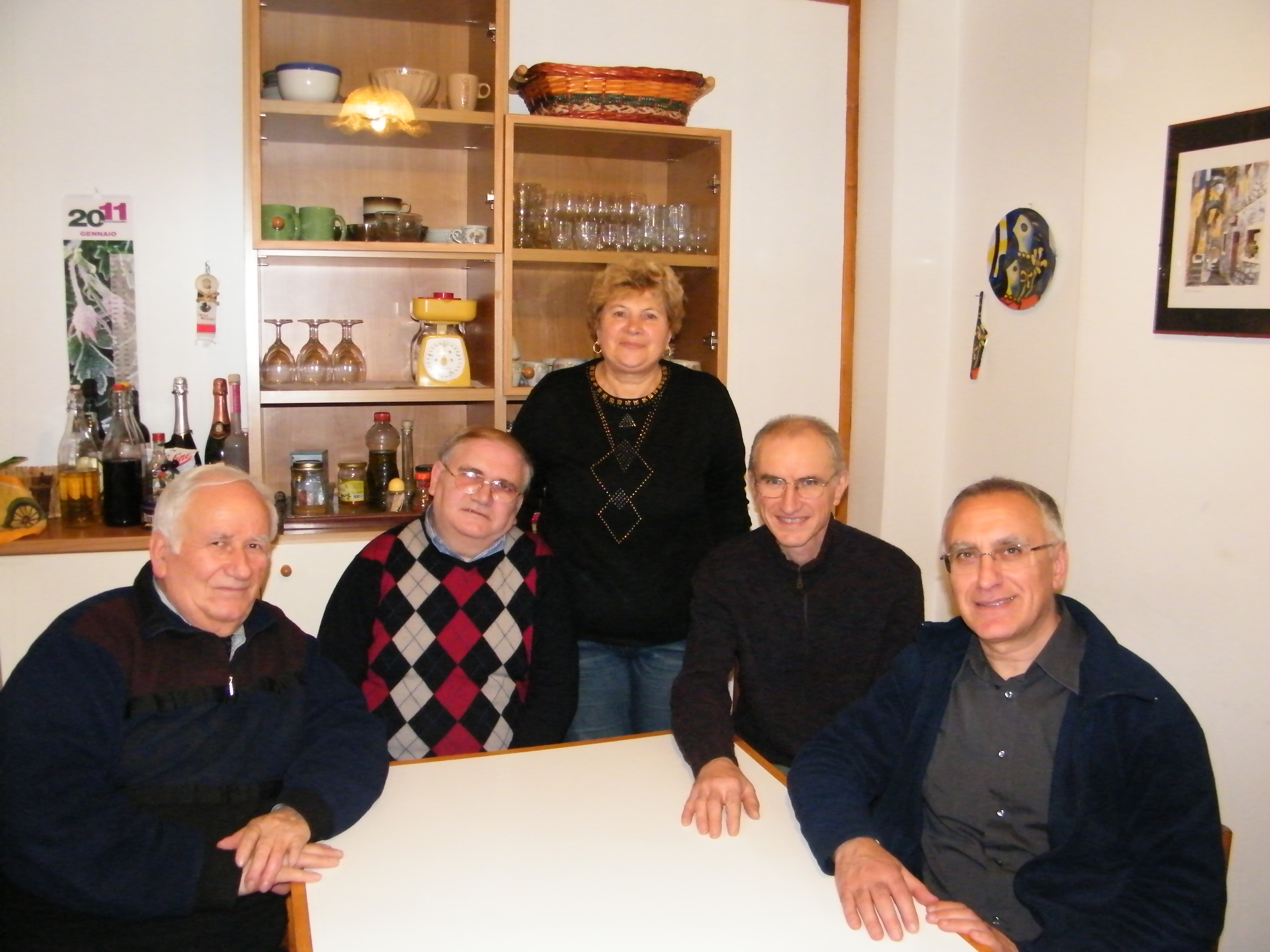 Through his visits with inmates, Alfonso has come to realise the importance of that fragile thread that connects them to the outside world. This is why he works so hard at keeping the relationship with families alive – especially with wives – and supporting families that find themselves in dire straits because of their relative’s imprisonment. This all takes time, people, energy and money. Alfonso never gave up. He began a project called “Always A Person” to show that prison does not take away a person’s human dignity, especially because God’s love for each one of us never diminishes. With 30 other volunteers – parents, professionals and ex-inmates – he has followed up with the families of 160 inmates, offering moral, economic and food support. The numbers grow each day. The spirit of the group is that of a focolare: “being family” for each inmate, being close to him and supporting him – never judging anyone’s past. In prison, words like trust and brotherhood take on deep meaning – especially mercy, an attitude that the volunteers say “acts on the person like a spring that helps them to get up again every time they’re tempted to let themselves go.” That’s how it was for Roberto who, after 8 years of incarceration and not finding any work, became homeless. Thanks to the “Always A Person” project he was accepted into a small welcome centre where he can practice his profession as a cook. There is also Francesco who had been a truck driver, but after 4 years in prison was not able to find a job because people didn’t trust him. Now, he belongs to the team of volunteers that prepares and delivers the packages for prisoners’ families. There are more stories like this one that are recounted in the books: “Ero carcerato…” and “Carcere e dintorni” written by Alfonso Di Nicola, and published by Città Nuova.
Through his visits with inmates, Alfonso has come to realise the importance of that fragile thread that connects them to the outside world. This is why he works so hard at keeping the relationship with families alive – especially with wives – and supporting families that find themselves in dire straits because of their relative’s imprisonment. This all takes time, people, energy and money. Alfonso never gave up. He began a project called “Always A Person” to show that prison does not take away a person’s human dignity, especially because God’s love for each one of us never diminishes. With 30 other volunteers – parents, professionals and ex-inmates – he has followed up with the families of 160 inmates, offering moral, economic and food support. The numbers grow each day. The spirit of the group is that of a focolare: “being family” for each inmate, being close to him and supporting him – never judging anyone’s past. In prison, words like trust and brotherhood take on deep meaning – especially mercy, an attitude that the volunteers say “acts on the person like a spring that helps them to get up again every time they’re tempted to let themselves go.” That’s how it was for Roberto who, after 8 years of incarceration and not finding any work, became homeless. Thanks to the “Always A Person” project he was accepted into a small welcome centre where he can practice his profession as a cook. There is also Francesco who had been a truck driver, but after 4 years in prison was not able to find a job because people didn’t trust him. Now, he belongs to the team of volunteers that prepares and delivers the packages for prisoners’ families. There are more stories like this one that are recounted in the books: “Ero carcerato…” and “Carcere e dintorni” written by Alfonso Di Nicola, and published by Città Nuova.
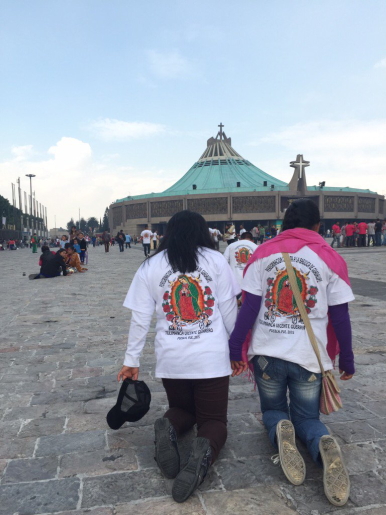
Feb 10, 2016 | Focolare Worldwide
 “Mexico City seems to be different today. There is a wave of hope, new life, and joy. The streets, phone booths, subways, and posters of the big avenues of the city, all announce the arrival of the Pilgrim from Rome, who wants, “like any other son, to come close to the Mother,” the beloved “Vírgin of Guadalupe”, Mother of all the Mexicans, Patron of the American continent, and according to many historians, the true author of unity of the Aztec nation. “I shall go to Our Lady like a pilgrim of mercy and peace. I am going to seek the Mexican people, who can give me something… I seek the deep faith you have, and I want to be contaminated with that richness of faith…,” Pope Francis said in the video-message sent to the Mexican people. And Mexico is preparing not only to receive him materially, but especially with the desire to receive with open hearts, the message of the “Bishop of Rome.” It is a message of hope, mercy, reconcilement, peace and fraternity. One feels a new attitude towards this pastoral visit. Of course there will be joy, emotion, and festivity, but also the desire to remain silent, listen and live it in depth. The Pope is coming in a particularly difficult time for our country, struck by violence, poverty and corruption, but in the messages he already sent to the Mexican people, Francis also conveyed his desire to come as “any man” and will involve every Mexican to help them bring out the best of themselves. In reading between the lines, we could almost say that his presence among us, if we manage to interpret and live it properly, can become a magnet for the many abilities our people possess, so as to radically swerve our path towards a more fraternal Mexico. The stages of the journey will not leave anyone out: Mexico City, Ecatepec, Chiapas, Morelia, and Ciudad Juárez. The pope will travel thousands of kilometres from the north to the south of the country. It will be a journey that will touch the neuralgic centres of conflicts, suffering, and at times even tragedies which Mexico is suffering, from the big city with its anonymity and social injustice, to the marginalised indigenous world, narcotraffick with all its violence, and the issue of border immigrants north of the country. The chosen itinerary and the activities to be held will launch a clear message: the Pope will come as a missionary of mercy and peace, especially for the most needy, and wants to share the wounds of this nation. Together with all the members of the Focolare Movement in the country, we have prepared ourselves by studying the teachings of Francis in depth, particularly the themes he will face in his visit: the youth, family, immigration, employment, and civilization of the aborigines. We want to receive his message, meet him and listen to him wherever he goes, even in the streets, and in the many routes his hoodless car will take. Moreover, we were called by the Mexican Episcopal Conference to collaborate, together with other ecclesiastical movements, in the visit’s logistics services especially in Mexico City. Welcome to Mexico, Pope Francis. With you we want to be missionaries of mercy and peace!.” From our news correspondents, Anabel Abascal and Raffaele Massolin Video-messaggio to the Mexican people: http://youtu.be/o8Y9VMFmOX0 Also consult: http://www.news.va/es/news/el-papa-a-los-mexicanos-voy-a-buscar-a-la-riquez-2 Official site: http://papafranciscoenmexico.org/
“Mexico City seems to be different today. There is a wave of hope, new life, and joy. The streets, phone booths, subways, and posters of the big avenues of the city, all announce the arrival of the Pilgrim from Rome, who wants, “like any other son, to come close to the Mother,” the beloved “Vírgin of Guadalupe”, Mother of all the Mexicans, Patron of the American continent, and according to many historians, the true author of unity of the Aztec nation. “I shall go to Our Lady like a pilgrim of mercy and peace. I am going to seek the Mexican people, who can give me something… I seek the deep faith you have, and I want to be contaminated with that richness of faith…,” Pope Francis said in the video-message sent to the Mexican people. And Mexico is preparing not only to receive him materially, but especially with the desire to receive with open hearts, the message of the “Bishop of Rome.” It is a message of hope, mercy, reconcilement, peace and fraternity. One feels a new attitude towards this pastoral visit. Of course there will be joy, emotion, and festivity, but also the desire to remain silent, listen and live it in depth. The Pope is coming in a particularly difficult time for our country, struck by violence, poverty and corruption, but in the messages he already sent to the Mexican people, Francis also conveyed his desire to come as “any man” and will involve every Mexican to help them bring out the best of themselves. In reading between the lines, we could almost say that his presence among us, if we manage to interpret and live it properly, can become a magnet for the many abilities our people possess, so as to radically swerve our path towards a more fraternal Mexico. The stages of the journey will not leave anyone out: Mexico City, Ecatepec, Chiapas, Morelia, and Ciudad Juárez. The pope will travel thousands of kilometres from the north to the south of the country. It will be a journey that will touch the neuralgic centres of conflicts, suffering, and at times even tragedies which Mexico is suffering, from the big city with its anonymity and social injustice, to the marginalised indigenous world, narcotraffick with all its violence, and the issue of border immigrants north of the country. The chosen itinerary and the activities to be held will launch a clear message: the Pope will come as a missionary of mercy and peace, especially for the most needy, and wants to share the wounds of this nation. Together with all the members of the Focolare Movement in the country, we have prepared ourselves by studying the teachings of Francis in depth, particularly the themes he will face in his visit: the youth, family, immigration, employment, and civilization of the aborigines. We want to receive his message, meet him and listen to him wherever he goes, even in the streets, and in the many routes his hoodless car will take. Moreover, we were called by the Mexican Episcopal Conference to collaborate, together with other ecclesiastical movements, in the visit’s logistics services especially in Mexico City. Welcome to Mexico, Pope Francis. With you we want to be missionaries of mercy and peace!.” From our news correspondents, Anabel Abascal and Raffaele Massolin Video-messaggio to the Mexican people: http://youtu.be/o8Y9VMFmOX0 Also consult: http://www.news.va/es/news/el-papa-a-los-mexicanos-voy-a-buscar-a-la-riquez-2 Official site: http://papafranciscoenmexico.org/
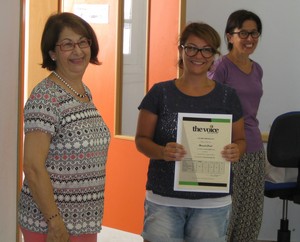
Feb 9, 2016 | Focolare Worldwide
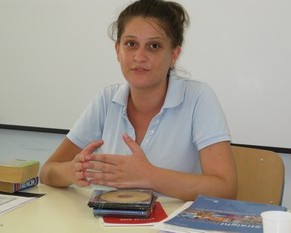 Coming down from the bus we immediately spot ““The Voice School of English”, situated in Pembroke, a few metres away the sea. The modern and spacious Malta National Sports School houses the Voice during the summer months. Andy, who co-ordinates the students’ visit to Malta, greets us with a big smile. She does not only know all the students by name, as actually all the teachers do, but she makes it a point to see that they receive the care and attention needed, while she works very closely even with the host families to ensure the comfort and well-being of each student. Together with Andy there is Vivienne, who has been working at The Voice since its very beginning 23 years ago; Maria, who after a long career in the Ministry of Education now offers her expertise as head of school, and Marilyn, who joined the school staff two years ago as director of studies. With her impressive record as teacher of English, Marilyn gives her precious contribution on pedagogical level; she follows very closely the academic progress of the students and she mentors the teaching staff to ensure support and progress in the teaching of English as a foreign language. The school prides itself with a team of professional and dedicated teachers. “The Voice” was founded in 1992 by a group of young people who decided to become personally involved in the Economy of Communion project launched by Chiara Lubich. Some of these young people are now the older generation who host students. Vivienne, who has been head of school for years and who still helps with its administration, looks back and relates: “Prior to the Voice I started a small business but the difficulties and problems I had to face made me decide to quit and promise that I would never attempt such a feat again. When I was roped in to help with the Voice, I discovered an economic activity motivated by different aspirations. This made me change my mind and till the present day I contribute wholeheartedly to make this project survive”.
Coming down from the bus we immediately spot ““The Voice School of English”, situated in Pembroke, a few metres away the sea. The modern and spacious Malta National Sports School houses the Voice during the summer months. Andy, who co-ordinates the students’ visit to Malta, greets us with a big smile. She does not only know all the students by name, as actually all the teachers do, but she makes it a point to see that they receive the care and attention needed, while she works very closely even with the host families to ensure the comfort and well-being of each student. Together with Andy there is Vivienne, who has been working at The Voice since its very beginning 23 years ago; Maria, who after a long career in the Ministry of Education now offers her expertise as head of school, and Marilyn, who joined the school staff two years ago as director of studies. With her impressive record as teacher of English, Marilyn gives her precious contribution on pedagogical level; she follows very closely the academic progress of the students and she mentors the teaching staff to ensure support and progress in the teaching of English as a foreign language. The school prides itself with a team of professional and dedicated teachers. “The Voice” was founded in 1992 by a group of young people who decided to become personally involved in the Economy of Communion project launched by Chiara Lubich. Some of these young people are now the older generation who host students. Vivienne, who has been head of school for years and who still helps with its administration, looks back and relates: “Prior to the Voice I started a small business but the difficulties and problems I had to face made me decide to quit and promise that I would never attempt such a feat again. When I was roped in to help with the Voice, I discovered an economic activity motivated by different aspirations. This made me change my mind and till the present day I contribute wholeheartedly to make this project survive”. 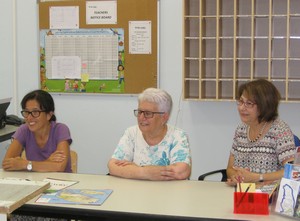 And notwithstanding difficulties and challenges the Voice is still offering its service to foreign students. Presently there are 47 English Language Schools in Malta and some of them cater for thousands of students, so one may wonder how such a small enterprise as the Voice still manages to keep going. Marilyn explains, “We aim at giving individual attention to each student, so the number of students in each class hardly ever exceeds 6; occasionally there is maximum of 8 students. Of course, this means that we have to employ more teachers! The school also offers one-to-one programmes that satisfy the student’s individual needs”. In this way, the teacher-student relationship becomes the pedagogical method, the key to linguistic progress, especially where the development of oral communication skills are concerned. The Voice experience continues with the host families, where students are given the opportunity not only to practise their English, but also to discover the Maltese culture and share the warm family atmosphere. Building relationships is a priority, explains Vivienne, a prerogative which gives the school its identity. “Here no student is a number; they are friends with whom we share all that we can, and even they share a lot with us”. This becomes even more evident during the Friday Certificate Award Ceremony when students who have finished the course wave good-bye to the rest of “community”, a term used by the students themselves. The Director of Studies has a word full of warmth and encouragement for each departing student, while the students’ faces reflect the pride of their achievement. Students interviewed speak of the family atmosphere created at the school. Karina says “I have found friends and very friendly teachers who really wish me well”, while Raffaella adds, “I feel encouraged to look for work when I go back home by the fact that my teacher at the Voice was younger than I; l would like to give my best, just like her”. In conformity with its values and its commitment towards the Economy of Communion, the Voice opts to employ and train new young members to join its team.
And notwithstanding difficulties and challenges the Voice is still offering its service to foreign students. Presently there are 47 English Language Schools in Malta and some of them cater for thousands of students, so one may wonder how such a small enterprise as the Voice still manages to keep going. Marilyn explains, “We aim at giving individual attention to each student, so the number of students in each class hardly ever exceeds 6; occasionally there is maximum of 8 students. Of course, this means that we have to employ more teachers! The school also offers one-to-one programmes that satisfy the student’s individual needs”. In this way, the teacher-student relationship becomes the pedagogical method, the key to linguistic progress, especially where the development of oral communication skills are concerned. The Voice experience continues with the host families, where students are given the opportunity not only to practise their English, but also to discover the Maltese culture and share the warm family atmosphere. Building relationships is a priority, explains Vivienne, a prerogative which gives the school its identity. “Here no student is a number; they are friends with whom we share all that we can, and even they share a lot with us”. This becomes even more evident during the Friday Certificate Award Ceremony when students who have finished the course wave good-bye to the rest of “community”, a term used by the students themselves. The Director of Studies has a word full of warmth and encouragement for each departing student, while the students’ faces reflect the pride of their achievement. Students interviewed speak of the family atmosphere created at the school. Karina says “I have found friends and very friendly teachers who really wish me well”, while Raffaella adds, “I feel encouraged to look for work when I go back home by the fact that my teacher at the Voice was younger than I; l would like to give my best, just like her”. In conformity with its values and its commitment towards the Economy of Communion, the Voice opts to employ and train new young members to join its team.  Moreover, an enterprise founded by young people cannot ignore the importance of offering work opportunities to youth. Claire, one of these young members of the staff, has been employed to guide and animate the afternoon leisure activities, because at the Voice it is not only English lessons that count but the whole shared experience, an opportunity to enhance the student’s personal development. In addition, Malta is a cultural and historical jewel…….and between a visit to the Pre-historic temples and the splendid Blue Grotto, one is often allowed enough time for a dip in the crystal clear water. Next time it might be the island of Comino and the Blue Lagoon, followed by a visit to the sister island of Gozo with its historical Citadel, or a visit to Valletta, the capital city where students can enjoy one of the most popular tourist attractions: an audio-visual show that tells all about the history and culture of the Maltese Islands. As days pass and one group “selfie” follows another, the school community changes; new arrivals are greeted with joy and there are hearty farewells for those who depart. At times the community circle widens because relatives holidaying in Malta join the school during its leisure activities. And more often than not, conversations at the beach tend to become serious talk on topics, such as the concept of the Economy of Communion that motivates the Voice, or on ideas about personal projects, or on issues that accompany one’s personal growth and professional development. Addresses and WhatsApp contacts are frequently exchanged……friendship does not end with the English course! Lately, new members who believe in the philosophy of the Economy of Communion have been invited by the Voice to join its group of directors; among them there is John, a consultant in Human Resources and Management, who specializes in the area of Tourism. The Voice looks forward to new developments! by Anouk Grevin Source: Economy of Communion Download brochure See the video: https://vimeo.com/135970956
Moreover, an enterprise founded by young people cannot ignore the importance of offering work opportunities to youth. Claire, one of these young members of the staff, has been employed to guide and animate the afternoon leisure activities, because at the Voice it is not only English lessons that count but the whole shared experience, an opportunity to enhance the student’s personal development. In addition, Malta is a cultural and historical jewel…….and between a visit to the Pre-historic temples and the splendid Blue Grotto, one is often allowed enough time for a dip in the crystal clear water. Next time it might be the island of Comino and the Blue Lagoon, followed by a visit to the sister island of Gozo with its historical Citadel, or a visit to Valletta, the capital city where students can enjoy one of the most popular tourist attractions: an audio-visual show that tells all about the history and culture of the Maltese Islands. As days pass and one group “selfie” follows another, the school community changes; new arrivals are greeted with joy and there are hearty farewells for those who depart. At times the community circle widens because relatives holidaying in Malta join the school during its leisure activities. And more often than not, conversations at the beach tend to become serious talk on topics, such as the concept of the Economy of Communion that motivates the Voice, or on ideas about personal projects, or on issues that accompany one’s personal growth and professional development. Addresses and WhatsApp contacts are frequently exchanged……friendship does not end with the English course! Lately, new members who believe in the philosophy of the Economy of Communion have been invited by the Voice to join its group of directors; among them there is John, a consultant in Human Resources and Management, who specializes in the area of Tourism. The Voice looks forward to new developments! by Anouk Grevin Source: Economy of Communion Download brochure See the video: https://vimeo.com/135970956
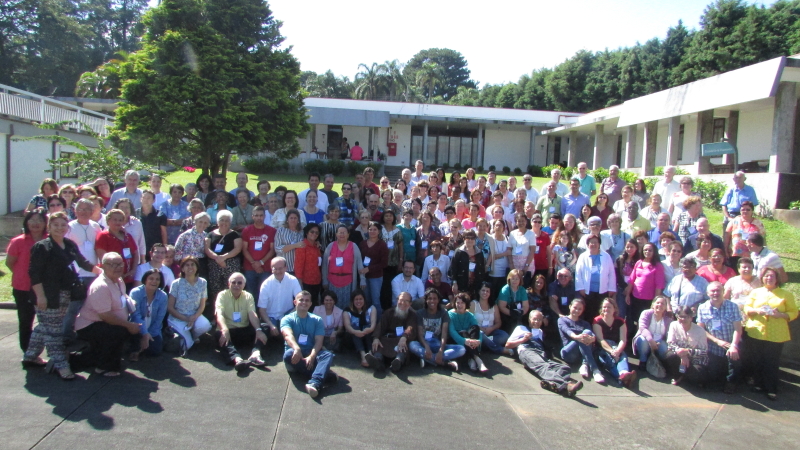
Feb 8, 2016 | Focolare Worldwide
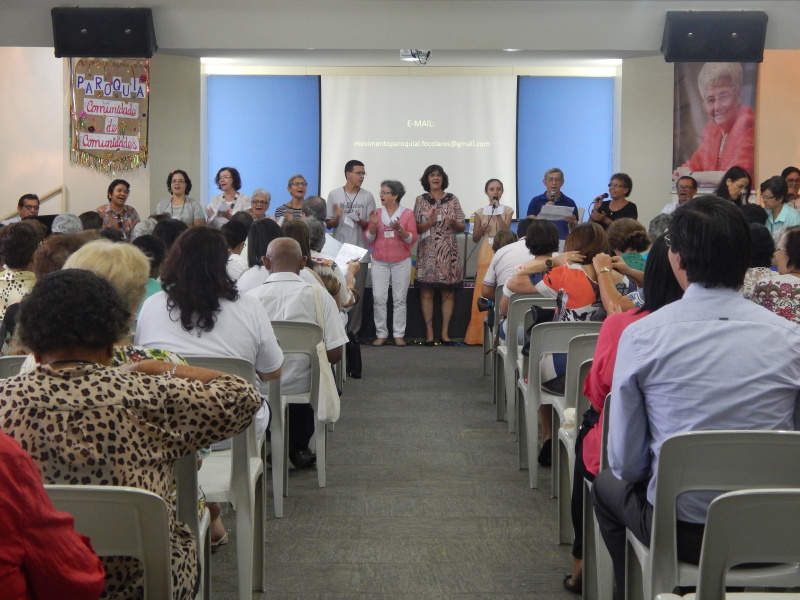 «I had been unjustly accused before the entire parish council. My answer was: silence, tears. After three days there was a phone call from that person, broken with emotion: “Will you forgive me?” and the answer, “I have already forgiven!!! Then a thought came to mind: it was not enough to forgive, but I could do more. So I invited that person to dinner, and a friendship was born, which will never be broken.» This is the story of Berenice, mother of three children, and a catechist for over 20 years, and then a minister of the Word in the five communities that make up the parish of Immaculata Conceção, in one of the peripheral districts of the immense city of Sao Paolo. These were flash backs of the many experiences recounted during the two “Schools of Communion” of the Parish Movement – branch of the Focolare Movement in the local Church – held from 22 to 24 January in the Ginetta Mariapolis, in Vargem Grande Paulista (SP) and from 30 to 31 January in the Mariapolis (Igarassu-Recife). The encounters focused on: Unity, the specific charism of the Focolare, with a particular stress on Mercy in this Holy Year. These were attended by 300 people consisting of the youth, lay adults, religious, seminarians, deacons and priests of 116 parishes in 27 dioceses from 16 Brazilian states. Together they testified to the force of forgiveness and mercy of evangelical love, which make the parish a community of communities, when this force and mercy are lived among the members of the movements.”
«I had been unjustly accused before the entire parish council. My answer was: silence, tears. After three days there was a phone call from that person, broken with emotion: “Will you forgive me?” and the answer, “I have already forgiven!!! Then a thought came to mind: it was not enough to forgive, but I could do more. So I invited that person to dinner, and a friendship was born, which will never be broken.» This is the story of Berenice, mother of three children, and a catechist for over 20 years, and then a minister of the Word in the five communities that make up the parish of Immaculata Conceção, in one of the peripheral districts of the immense city of Sao Paolo. These were flash backs of the many experiences recounted during the two “Schools of Communion” of the Parish Movement – branch of the Focolare Movement in the local Church – held from 22 to 24 January in the Ginetta Mariapolis, in Vargem Grande Paulista (SP) and from 30 to 31 January in the Mariapolis (Igarassu-Recife). The encounters focused on: Unity, the specific charism of the Focolare, with a particular stress on Mercy in this Holy Year. These were attended by 300 people consisting of the youth, lay adults, religious, seminarians, deacons and priests of 116 parishes in 27 dioceses from 16 Brazilian states. Together they testified to the force of forgiveness and mercy of evangelical love, which make the parish a community of communities, when this force and mercy are lived among the members of the movements.”  There were numberless fruits of the Word of God put into practice: in the districts of the outskirts where the laity took charge of finding the facilities to host the growing numbers of the faithful and the youth, who dedicated themselves to the various pastoral activities in the prisons or parish social works where the priority is to listen and pay attention to the person rather than to organization and material aid. Some undertook to initiate small encounters in the parishioners’ homes, bringing the Word of Life to the lives of families that are oftentimes far from the Church as in the case of Maria Hélia from a community of Marechal Deodoro. Bernadete lives in João Pessoa and is a catechist in the parish of Baby Jesus and a member of the archdiocesan team of catechists. She tries to share what she lives with a great openness to dialogue, starting from her family and relatives who belong to the evangelical church and Pentecostal associations. On Christmas Day she managed to involve everyone – including her husband who is not a Church goer – in a sketch of the birth of Jesus. “A spirit of dialogue and unity was established among all of us. We had a real Christmas!” During the conclusive meeting, the commitment declared by all was to become builders of unity within the communities, creating relationships in which, through mutual love, the Risen Christ is present and attracts and transforms everything, irradiating peace and joy. The objective was this: to have an open heart and fulfill “Jesus’ dream” when he prayed to the Father ”that all may be one.”
There were numberless fruits of the Word of God put into practice: in the districts of the outskirts where the laity took charge of finding the facilities to host the growing numbers of the faithful and the youth, who dedicated themselves to the various pastoral activities in the prisons or parish social works where the priority is to listen and pay attention to the person rather than to organization and material aid. Some undertook to initiate small encounters in the parishioners’ homes, bringing the Word of Life to the lives of families that are oftentimes far from the Church as in the case of Maria Hélia from a community of Marechal Deodoro. Bernadete lives in João Pessoa and is a catechist in the parish of Baby Jesus and a member of the archdiocesan team of catechists. She tries to share what she lives with a great openness to dialogue, starting from her family and relatives who belong to the evangelical church and Pentecostal associations. On Christmas Day she managed to involve everyone – including her husband who is not a Church goer – in a sketch of the birth of Jesus. “A spirit of dialogue and unity was established among all of us. We had a real Christmas!” During the conclusive meeting, the commitment declared by all was to become builders of unity within the communities, creating relationships in which, through mutual love, the Risen Christ is present and attracts and transforms everything, irradiating peace and joy. The objective was this: to have an open heart and fulfill “Jesus’ dream” when he prayed to the Father ”that all may be one.”

 The Airport of Havana, Cuba, hosted the first meeting in history between the Bishop of Rome and the Patriarch of Moscow, on February 12, 2016. It was a fraternal encounter “between bishops’ that “gave an opportunity to listen and understand each other’s positions” said Patriarch Kirill at the conclusion of the meeting. Among the common concerns were the desire for peace and the defence of persecuted Christians around the world. “I felt the consolation of the Holy Spirit in this dialogue,” Pope Francis remarked, with the prospect of “a series of initiatives” to be carried forward together. “We are not competitors but brothers, and this concept must guide all our mutual actions as well as those directed to the outside world,” states the Joint Declaration that was signed by the Pope and the Patriarch. The declaration calls for common efforts between Roman Catholic and Orthodox Christians, and overcoming the historic divergences we have inherited, responding together to the challenges of today’s world. Christians are now victims of persecutions and violence in Syria, Iraq and other Middle East countries. Other challenges include the fight against terrorism, interreligious dialogue, European integration and respect for religious identities. The document also mentions social and ethical topics, with “pastoral” concern, as Pope Francis stressed while speaking with journalists on the flight between Cuba and Mexico: poverty, the breakdown of the family, the right to life (abortion, euthanasia and assisted reproduction), young people and peace in Ukraine. Much of the future of humanity will depend on our capacity to give shared witness to the Spirit of truth in these difficult times,” the document goes on to say.
The Airport of Havana, Cuba, hosted the first meeting in history between the Bishop of Rome and the Patriarch of Moscow, on February 12, 2016. It was a fraternal encounter “between bishops’ that “gave an opportunity to listen and understand each other’s positions” said Patriarch Kirill at the conclusion of the meeting. Among the common concerns were the desire for peace and the defence of persecuted Christians around the world. “I felt the consolation of the Holy Spirit in this dialogue,” Pope Francis remarked, with the prospect of “a series of initiatives” to be carried forward together. “We are not competitors but brothers, and this concept must guide all our mutual actions as well as those directed to the outside world,” states the Joint Declaration that was signed by the Pope and the Patriarch. The declaration calls for common efforts between Roman Catholic and Orthodox Christians, and overcoming the historic divergences we have inherited, responding together to the challenges of today’s world. Christians are now victims of persecutions and violence in Syria, Iraq and other Middle East countries. Other challenges include the fight against terrorism, interreligious dialogue, European integration and respect for religious identities. The document also mentions social and ethical topics, with “pastoral” concern, as Pope Francis stressed while speaking with journalists on the flight between Cuba and Mexico: poverty, the breakdown of the family, the right to life (abortion, euthanasia and assisted reproduction), young people and peace in Ukraine. Much of the future of humanity will depend on our capacity to give shared witness to the Spirit of truth in these difficult times,” the document goes on to say.  “Here in Moscow there is also the feeling that this was an important and historic meeting” writes focolarina Anna Gloria from the focolare in Moscow. The mass media are talking about it a lot. Bishop Paolo Pezzi invited everyone to the Cathedral of the Immaculate Conception to pray for unity. It was quite beautiful. There were Catholics and Orthodox from several movements and communities. Everyone feels that an important step towards unity has been taken.” Despite recent tensions between Moscow and Rome, the Russian Orthodox Church has a long history of seeking the reconciliation of the divided Christian churches. Father Hyacinthe Destivelle said so during an interview with the Vatican Radio. He is in charge of relations with the Slavic Orthodox Churches at the Pontifical Council for Christian Unity and was in Cuba for the meeting. Father Destivelle also explained that “the Russian Orthodox Church is fifth in the traditional order of authority among the 14 autocephalous Orthodox Churches. First position belongs to the Patriarchate of Constantinople, with a primacy of honour. It has a special relationship with the Holy See.” “The significance of the meeting between Pope Francis and Patriarch Kirill can also be seen in light of history with the Russian Orthodox Church,” where it “can act as a bridge between East and West.” Father Destivelle also gave other examples of how the Russian Orthodox Church was an active pioneer in ecumenical relations. It was the first Church to send observers during the Second Vatican Council. During their private meeting, Pope Francis and Patriarch Kirill also discussed the upcoming Pan-Orthodox Council scheduled for June 2016 in Crete. It will ”gather all the Orthodox churches for an Orthodox Synod,” Dr. Dimitrios Keramidas recently explained at an ecumenical school of the Focolare Movement, “this is not an event that is inserted into ecclesial life, but rather the official manifestation of the communional essence of the Church, the on-going and uninterrupted journey of the People of God.” It is a journey towards unity.
“Here in Moscow there is also the feeling that this was an important and historic meeting” writes focolarina Anna Gloria from the focolare in Moscow. The mass media are talking about it a lot. Bishop Paolo Pezzi invited everyone to the Cathedral of the Immaculate Conception to pray for unity. It was quite beautiful. There were Catholics and Orthodox from several movements and communities. Everyone feels that an important step towards unity has been taken.” Despite recent tensions between Moscow and Rome, the Russian Orthodox Church has a long history of seeking the reconciliation of the divided Christian churches. Father Hyacinthe Destivelle said so during an interview with the Vatican Radio. He is in charge of relations with the Slavic Orthodox Churches at the Pontifical Council for Christian Unity and was in Cuba for the meeting. Father Destivelle also explained that “the Russian Orthodox Church is fifth in the traditional order of authority among the 14 autocephalous Orthodox Churches. First position belongs to the Patriarchate of Constantinople, with a primacy of honour. It has a special relationship with the Holy See.” “The significance of the meeting between Pope Francis and Patriarch Kirill can also be seen in light of history with the Russian Orthodox Church,” where it “can act as a bridge between East and West.” Father Destivelle also gave other examples of how the Russian Orthodox Church was an active pioneer in ecumenical relations. It was the first Church to send observers during the Second Vatican Council. During their private meeting, Pope Francis and Patriarch Kirill also discussed the upcoming Pan-Orthodox Council scheduled for June 2016 in Crete. It will ”gather all the Orthodox churches for an Orthodox Synod,” Dr. Dimitrios Keramidas recently explained at an ecumenical school of the Focolare Movement, “this is not an event that is inserted into ecclesial life, but rather the official manifestation of the communional essence of the Church, the on-going and uninterrupted journey of the People of God.” It is a journey towards unity.




 “How will we celebrate St. Valentines? We don’t know yet. Any occasion is fine for surprising the other with something nice, hiding last-minute gifts.” Iris is a 26 year-old Brazilian. She is in Italy on an international cooperative project. She is engaged to Antonello, an Economics graduate, waiting for a job that is more in tune with his academic background. He works shifts at a call centre. When they first met, Iris was a bit reluctant about beginning a new relationship, because she had been previously disappointed by love. But Antonello managed to get her cell phone number and with his fantastic text messages, finally convinced her to give it another try. “The more we met, the more I realised I was in love,” Iris admits, “and we began to make plans.” “What kind of plans?” we asked. “First of all,” says Antonello, “I wanted to introduce her to my parents. Then we travelled to Brazil to meet her parents. Meanwhile, we were discovering each other’s cultures and different religious beliefs. Iris is deeply Catholic. I have a more humanistic view of things. But even if we come from different paths, we’re both convinced of the beauty of marriage, and that it is a profoundly human and sacred act.” Iris recounts: “That exchange – which for me, accustomed to certainties that were too often taken for granted – wasn’t easy. But it helped us to realise how strong our love was, a love that made us grow as human beings: I became more of a woman, and Antonello more of a man. It also led us to our decision that we would get married when we were financially independent.” Their certainty is disarming, considering the many couples around them whose relationships have failed, whose great love has vanished into thin air. Just the same, they want to take the big step into marriage because – as they say – “We’re sure of our love. It’s not merely a romantic dinner or a chocolate Valentine heart. “Love,” Iris explains, “is falling in love with the other’s soul. It’s knowing how to put aside one’s own thinking, to make room for the other’s thinking, and to show that for you, he matters more for what he is than for what you would like him to be.”
“How will we celebrate St. Valentines? We don’t know yet. Any occasion is fine for surprising the other with something nice, hiding last-minute gifts.” Iris is a 26 year-old Brazilian. She is in Italy on an international cooperative project. She is engaged to Antonello, an Economics graduate, waiting for a job that is more in tune with his academic background. He works shifts at a call centre. When they first met, Iris was a bit reluctant about beginning a new relationship, because she had been previously disappointed by love. But Antonello managed to get her cell phone number and with his fantastic text messages, finally convinced her to give it another try. “The more we met, the more I realised I was in love,” Iris admits, “and we began to make plans.” “What kind of plans?” we asked. “First of all,” says Antonello, “I wanted to introduce her to my parents. Then we travelled to Brazil to meet her parents. Meanwhile, we were discovering each other’s cultures and different religious beliefs. Iris is deeply Catholic. I have a more humanistic view of things. But even if we come from different paths, we’re both convinced of the beauty of marriage, and that it is a profoundly human and sacred act.” Iris recounts: “That exchange – which for me, accustomed to certainties that were too often taken for granted – wasn’t easy. But it helped us to realise how strong our love was, a love that made us grow as human beings: I became more of a woman, and Antonello more of a man. It also led us to our decision that we would get married when we were financially independent.” Their certainty is disarming, considering the many couples around them whose relationships have failed, whose great love has vanished into thin air. Just the same, they want to take the big step into marriage because – as they say – “We’re sure of our love. It’s not merely a romantic dinner or a chocolate Valentine heart. “Love,” Iris explains, “is falling in love with the other’s soul. It’s knowing how to put aside one’s own thinking, to make room for the other’s thinking, and to show that for you, he matters more for what he is than for what you would like him to be.” 
 “The Gospel isn’t just a collection of words. It’s also a list of facts. It’s life. Jesus not only preached, he healed the sick, comforted the afflicted, raised the dead and fed the hungry. He performed the Works of Mercy because He loved. “I have compassion for these people,” He exclaimed upon seeing the hungry throngs, and He multiplied bread to satisfy their hunger. Bread takes on a sacred value in the Redemption. Jesus inserts the greatest mystery into bread, and He made the Eucharistic Banquet the core of the life of the Church community, forever uniting body and spirit, just as He had united humanity and divinity in Himself. Therefore, you love God, the Father, when you feed the hungry. All those who can offer nourishment to the undernourished and hungry and don’t do so, are murderers according to the Fathers of the Church; indeed, they’re god-killers. They cause Christ to die. From the perspective of the Gospel all those who, during the war years, forced condemned prisoners to starve to death, repeated the crucifixion. It was like murdering God. The hordes of the deported – in snow or under blazing sun, in armored cars, or in isolated ships whose monotony was only interrupted by the falling of the hungry – crossed the line of practical atheism even when it was perpetrated in the name of God. That is why Saint Vincent de Paul went aboard the galleys of very Christian kings, where the galley slaves were dropping dead from exhaustion. A Work of Mercy is not the mere distribution of food or money. It reconstitutes justice. “The Works of Mercy accomplish nothing without love,” Saint Augustine says. “If I give everything I own to the poor and even go to the stake to be burned as a martyr, but I don’t love, I’ve gotten nowhere” (1 Cor 13:3), Saint Paul says to those Christians who shared the Bread of Angels but not that of men. The cold and reserved woman who gives Christmas to the poor but never opens her soul to them, performs nothing more than a bureaucratic duty: Christ is not pleased. Social welfare does little or nothing at all to produce the effects of a religious life, if those who carry it out don’t bring that divine nourishment of the Holy Spirit, which is love.
“The Gospel isn’t just a collection of words. It’s also a list of facts. It’s life. Jesus not only preached, he healed the sick, comforted the afflicted, raised the dead and fed the hungry. He performed the Works of Mercy because He loved. “I have compassion for these people,” He exclaimed upon seeing the hungry throngs, and He multiplied bread to satisfy their hunger. Bread takes on a sacred value in the Redemption. Jesus inserts the greatest mystery into bread, and He made the Eucharistic Banquet the core of the life of the Church community, forever uniting body and spirit, just as He had united humanity and divinity in Himself. Therefore, you love God, the Father, when you feed the hungry. All those who can offer nourishment to the undernourished and hungry and don’t do so, are murderers according to the Fathers of the Church; indeed, they’re god-killers. They cause Christ to die. From the perspective of the Gospel all those who, during the war years, forced condemned prisoners to starve to death, repeated the crucifixion. It was like murdering God. The hordes of the deported – in snow or under blazing sun, in armored cars, or in isolated ships whose monotony was only interrupted by the falling of the hungry – crossed the line of practical atheism even when it was perpetrated in the name of God. That is why Saint Vincent de Paul went aboard the galleys of very Christian kings, where the galley slaves were dropping dead from exhaustion. A Work of Mercy is not the mere distribution of food or money. It reconstitutes justice. “The Works of Mercy accomplish nothing without love,” Saint Augustine says. “If I give everything I own to the poor and even go to the stake to be burned as a martyr, but I don’t love, I’ve gotten nowhere” (1 Cor 13:3), Saint Paul says to those Christians who shared the Bread of Angels but not that of men. The cold and reserved woman who gives Christmas to the poor but never opens her soul to them, performs nothing more than a bureaucratic duty: Christ is not pleased. Social welfare does little or nothing at all to produce the effects of a religious life, if those who carry it out don’t bring that divine nourishment of the Holy Spirit, which is love. 



 “I was still a child,” Alfonso from the class of 1945 recounts, “when my father was unjustly imprisoned. My mother and I would visit him in prison and, at such a tender age I realised how lonely the inmates were: people without hope or future – and without dignity. So, I promised myself that one day I would do something for them.” Alfonso had to wait for that chance. He enrolled in a course on volunteering and obtained permission to make visits to Rebibbia Prison, which currently has 1,700 inmates. They are serving time for the most varied crimes: drug dealing, sex abuse, mafia activity, extortion, murder, and more. Alfonso was aware that his efforts would be limited by the distrust of the inmates who belived they had lost any chance at redemption. In fact, many of them refused to let him approach. But he never gave up because he was convinced they were the image of the God he had chosen when he became a
“I was still a child,” Alfonso from the class of 1945 recounts, “when my father was unjustly imprisoned. My mother and I would visit him in prison and, at such a tender age I realised how lonely the inmates were: people without hope or future – and without dignity. So, I promised myself that one day I would do something for them.” Alfonso had to wait for that chance. He enrolled in a course on volunteering and obtained permission to make visits to Rebibbia Prison, which currently has 1,700 inmates. They are serving time for the most varied crimes: drug dealing, sex abuse, mafia activity, extortion, murder, and more. Alfonso was aware that his efforts would be limited by the distrust of the inmates who belived they had lost any chance at redemption. In fact, many of them refused to let him approach. But he never gave up because he was convinced they were the image of the God he had chosen when he became a  Through his visits with inmates, Alfonso has come to realise the importance of that fragile thread that connects them to the outside world. This is why he works so hard at keeping the relationship with families alive – especially with wives – and supporting families that find themselves in dire straits because of their relative’s imprisonment. This all takes time, people, energy and money. Alfonso never gave up. He began a project called “
Through his visits with inmates, Alfonso has come to realise the importance of that fragile thread that connects them to the outside world. This is why he works so hard at keeping the relationship with families alive – especially with wives – and supporting families that find themselves in dire straits because of their relative’s imprisonment. This all takes time, people, energy and money. Alfonso never gave up. He began a project called “




